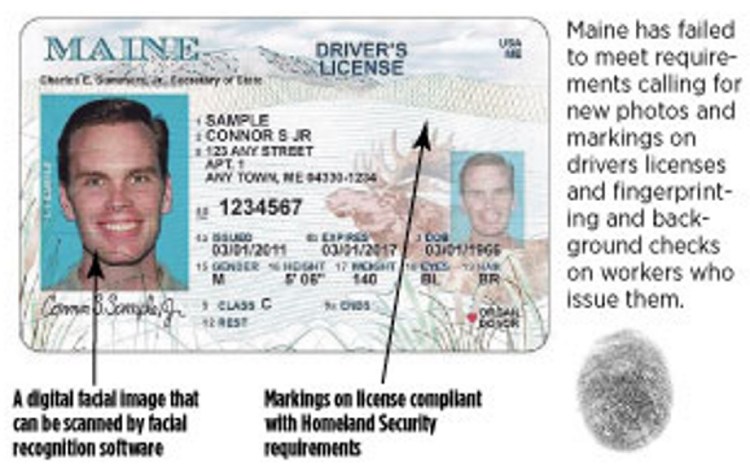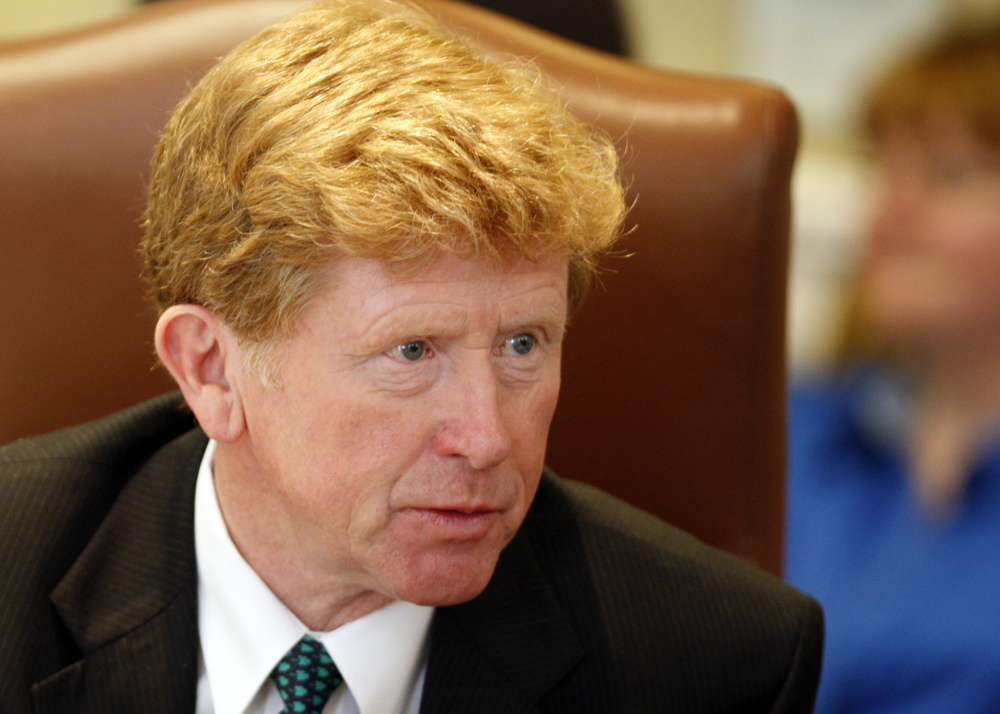Time is running short for Mainers who are accustomed to traveling by commercial airline using only their driver’s license for identification.
Maine is one of only five states in the U.S., and the only state in New England, that have refused to comply with the federal Real ID law, which requires more information on state-issued identification cards. The other noncompliant states are Kentucky, Montana, Pennsylvania and South Carolina.
Unless the state acts, on Jan. 22, 2018, Maine driver’s licenses will no longer be a form of identification accepted by the Transportation Security Administration for boarding a commercial flight. The license also won’t be accepted for entry to federal buildings, including those run by the Department of Veterans Affairs.
The U.S. Department of Homeland Security also has said that if Maine is still out of compliance, starting on Jan. 30 this month the federal government will no longer accept Maine IDs or driver’s licenses for entering some federal facilities, such as military bases, nuclear plants and certain federal offices.
“The impact of this is considerable,” said Sen. Bill Diamond, D-Windham, who plans to offer legislation this year to make Maine comply with federal standards. The Legislature previously passed a law rejecting compliance with Real ID.
Diamond, a former Maine secretary of state who oversaw the Bureau of Motor Vehicles, said he understands there are privacy concerns, but travel and commerce will become too difficult for too many Mainers without the change.
He says the federal law, passed in 2005 after the 9/11 Commission Report, is ultimately aimed at security and safety.
“The opposition will say that people can still use passports and that kind of thing,” said Diamond, “but that’s not an alternative that’s practical and many Maine people can’t afford a passport.” He said that if Maine were to comply, changes to licenses and identification cards would be phased in over a period of time and would coincide with existing license renewals.
Diamond’s bill will likely go before the Legislature’s Transportation Committee in the weeks ahead. The panel has jurisdiction over the Bureau of Motor Vehicles, which issues driver’s licenses and state identification cards.
If passed by the Legislature, the bill also would have to be signed by Republican Gov. Paul LePage. He has previously been opposed to bringing Maine into compliance with Real ID, but he has supported proposals that voters be required to present photo identification at the polls. LePage’s office did not respond Friday to a message requesting comment on Real ID.
Maine’s current secretary of state, Matthew Dunlap, a Democrat, said he opposes having the state conform with the Real ID law. He said Congress needs to revisit the law because it puts consolidated personal data at risk and has little impact on terrorism or illegal immigration.
It would cost Maine an estimated $1 million to $3 million to comply with Real ID standards, which use new technologies for facial recognition and fingerprinting. The law requires states to keep scans of official documents such as birth certificates that are used to prove identity or citizenship when applying for identification.
Dunlap said opponents are “really freaked out” because they don’t have trust in the federal government’s ability to protect the private and personal identifying information in its possession.
“This is a tightly aggregated set of data on every single citizen,” Dunlap said. “That eastern European (Communist Bloc) show-me-your-papers-at-the-border thing, that really turned people off.”
However, it will be the Legislature and not Dunlap that decides whether to support Diamond’s proposal to bring Maine licenses and identification cards into compliance with Real ID standards.
Currently, 25 states and the District of Columbia have complied with Real ID, and another 17 have been granted limited waivers that expire in 2017 as they work toward compliance, according to information available at Homeland Security, which is tasked with enforcing the law.
Dunlap was appointed by Congress and then-Gov. John Baldacci to a national panel that worked on developing uniform national standards for licensing and identification systems after 9/11. The 9/11 Commission Report found that the terrorists who hijacked planes on Sept. 11, 2001, had easily obtained driver’s licenses using a variety of documents for identification.
Dunlap said that even under Real ID, a terrorist using the very same types of paperwork could receive a driver’s license today.
Both Dunlap and Diamond acknowledge that if Maine doesn’t agree to accept Real ID, residents who don’t have passports may still be allowed to board commercial flights, provided they have alternative forms of identification acceptable to the TSA, but they will likely be subjected to more extensive security screening.
Diamond said he understands Dunlap’s perspective, but he noted that the federal government already collects enormous amounts of data on U.S. citizens, and the process of traveling on a commercial airline already involves surrendering privacy for the sake of air safety.
“I understand and believe privacy is very important, but we are talking about some minimum standards here,” Diamond said. “We already lose our privacy when we go to the airport now. We take our shoes off and we empty our pockets and we go into a cubicle and they look at our naked bodies. So how private is that?”
Diamond also said that he expects, based on his campaign statements, that the administration of Republican President-elect Donald Trump will be more forceful in trying to bring states into compliance for the sake of border security.
“I think they will be more aggressive, that would be a logical guess,” Diamond said. “I don’t see any way they will back off on this.”
Send questions/comments to the editors.





Success. Please wait for the page to reload. If the page does not reload within 5 seconds, please refresh the page.
Enter your email and password to access comments.
Hi, to comment on stories you must . This profile is in addition to your subscription and website login.
Already have a commenting profile? .
Invalid username/password.
Please check your email to confirm and complete your registration.
Only subscribers are eligible to post comments. Please subscribe or login first for digital access. Here’s why.
Use the form below to reset your password. When you've submitted your account email, we will send an email with a reset code.